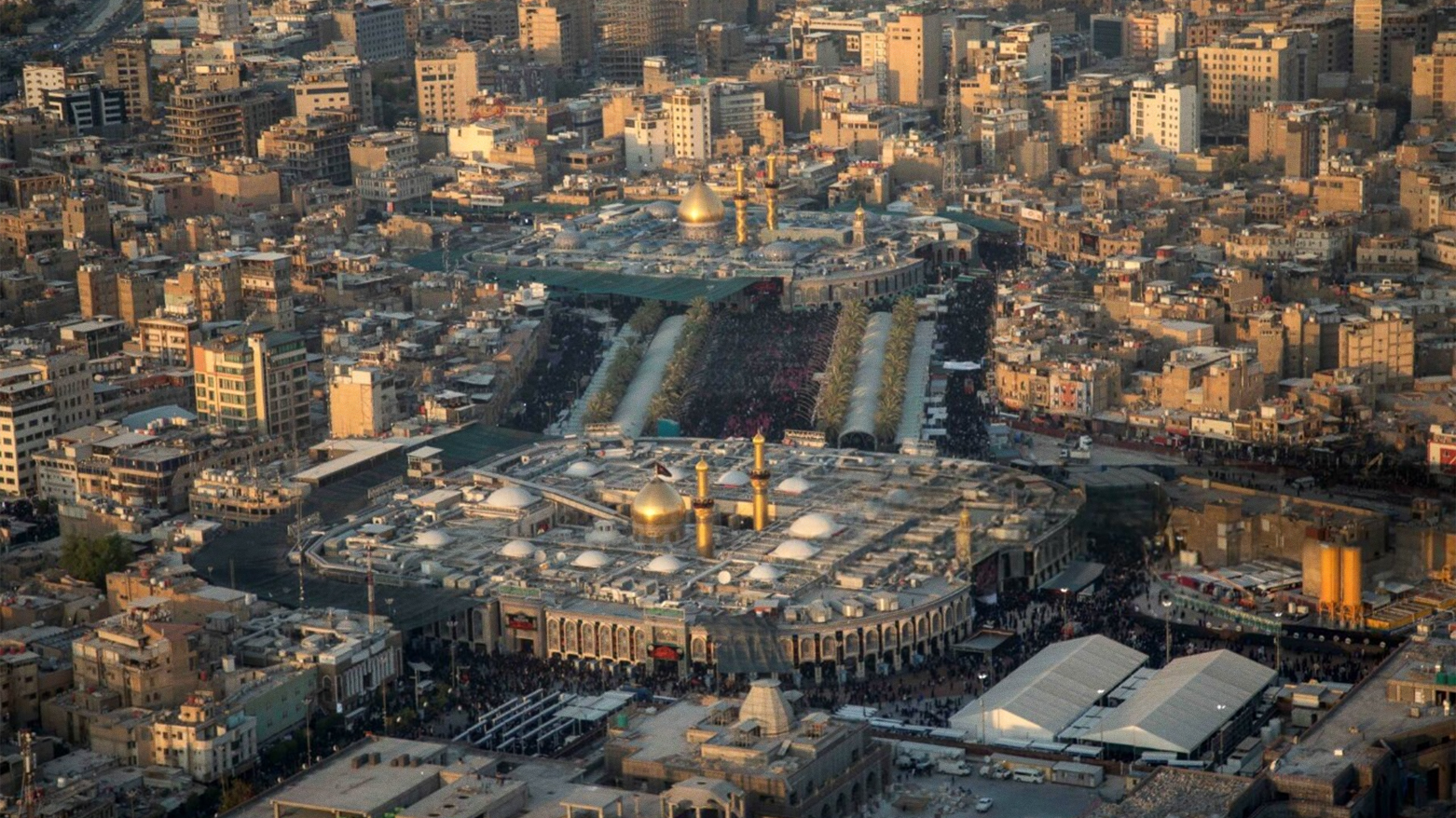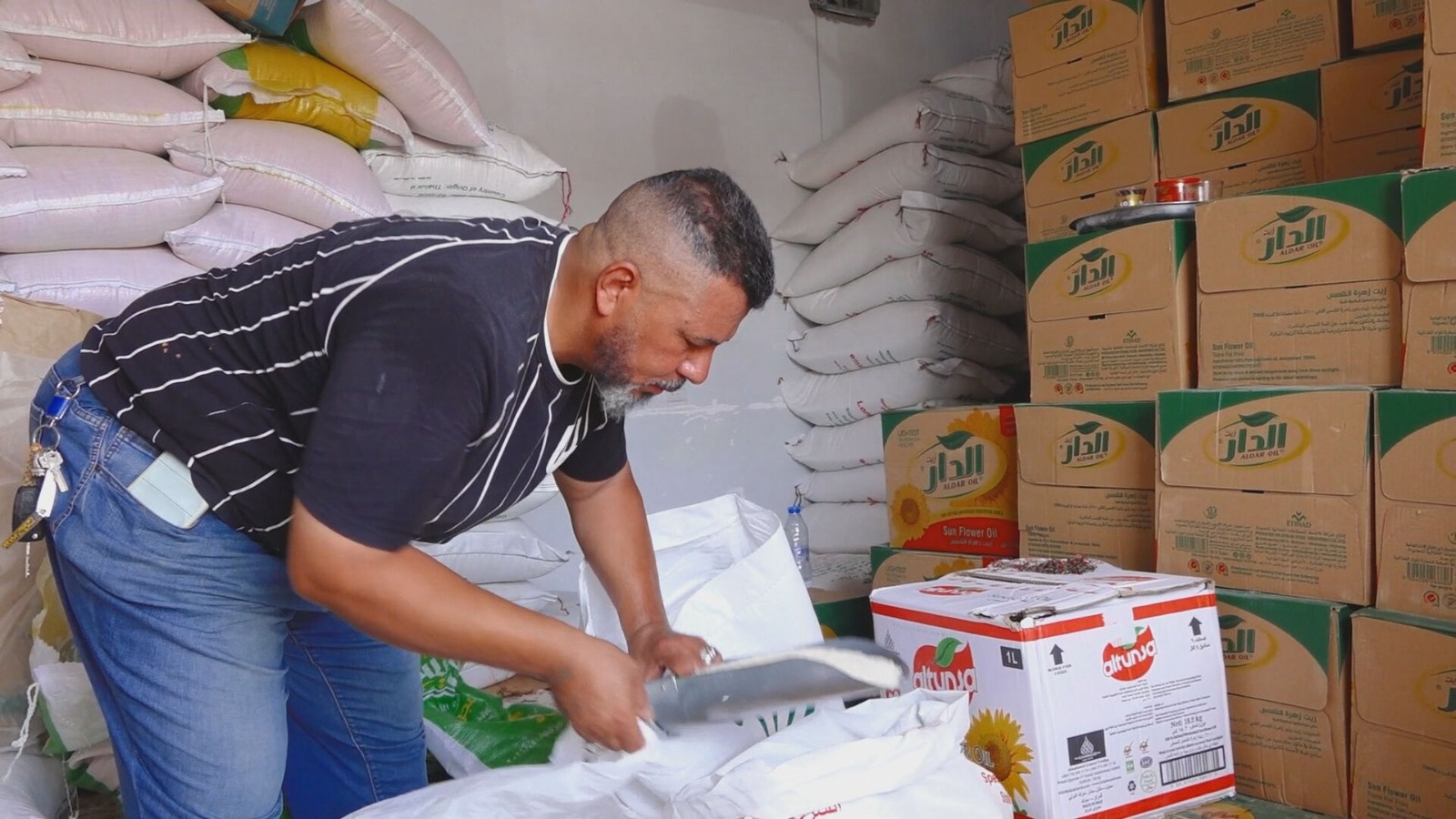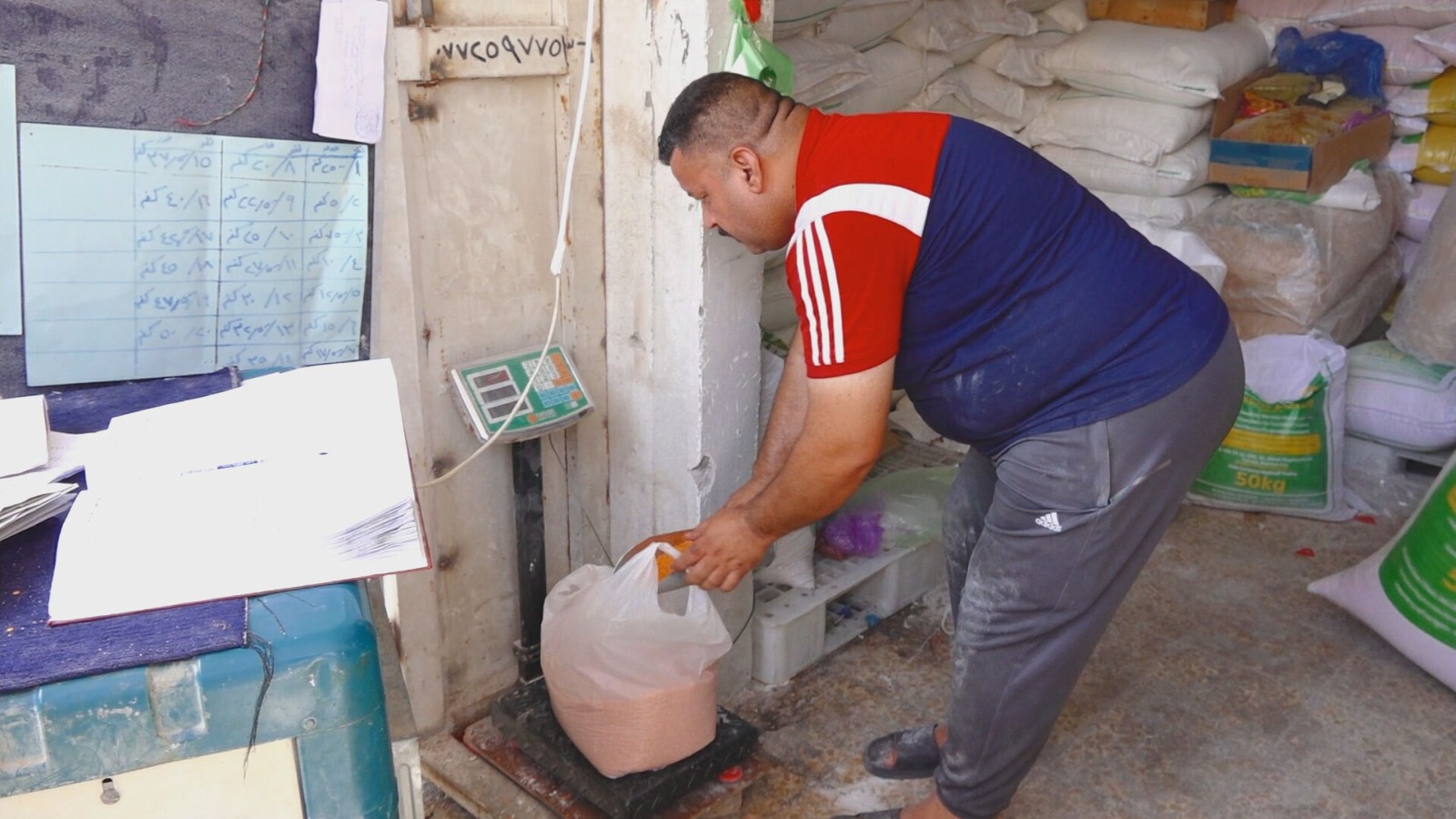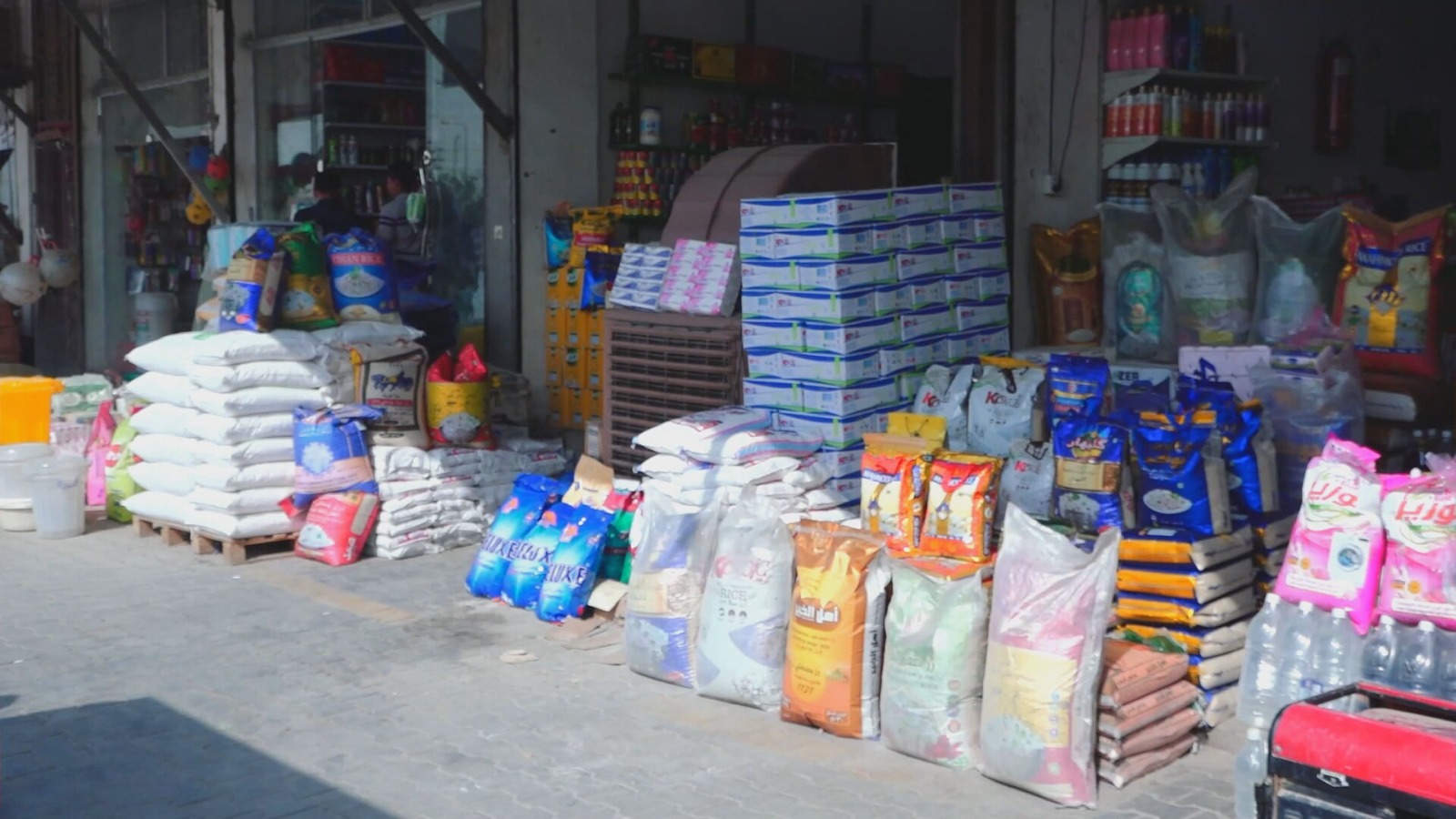Rotten Rice, Resold Rations: Karbala Feels the Strain of a Broken System
The government’s food distribution program — once designed to alleviate poverty and ensure basic sustenance — is now feeding a growing black-market economy.

By Kamaran Aziz
ERBIL (Kurdistan24) – A core pillar of Iraq’s social safety net has morphed into a symbol of dysfunction in the holy city of Karbala, where state-issued ration card items are now commonly found not in kitchens, but stacked on shelves of wholesale and retail stores.
The government’s food distribution program — once designed to alleviate poverty and ensure basic sustenance — is now feeding a growing black-market economy. This transformation has been fueled by the poor quality of goods, lack of state oversight, and mounting public frustration.
From Public Aid to Market Commodity
Every month, Karbala residents receive food allocations under Iraq’s ration card system. But instead of serving as a lifeline, many recipients offload the items at nominal prices — driven either by economic hardship or dissatisfaction with their quality. The result: rationed goods circulate in local markets, sold next to high-quality imports but at a fraction of the cost.
"Every month I give my ration to the poor," one Karbala resident told Kurdistan24. "The rice is rotten, and the oil is unfit for human consumption — it smells like motor oil."
Another citizen, visibly angry, questioned the moral disconnect between politicians and the public: "Do the politicians in parliament eat this low-quality rice? I don't think it's edible at all."

Traders Profit from Desperation
Karbala food shop owner Mohammed al-Asadi offered insight into the resale pipeline. “Unfortunately, some citizens are forced to sell their shares due to poverty or the need to pay for medical treatment. Others sell them simply because the items are inedible,” he told Kurdistan24.
Al-Asadi described the business model: “We buy a kilo of rice from people for 250 dinars and sell it for 500. Meanwhile, quality rice in the market sells for 2,500 dinars per kilo. The rice in the ration card is of such poor quality that nobody wants to eat it.”

Systemic Failure and No Accountability
What might have been dismissed as isolated complaints is now an entrenched pattern. Traders in Karbala describe the issue not as occasional leakage, but as a normalized system failure — a reflection of institutional decay. They point to a vacuum of government oversight as a primary enabler of this illicit trade.
With regulatory bodies failing to monitor the quality of distributed goods or police their diversion into open markets, the state-run support structure is eroding. What remains is a cycle of delivery, rejection, and resale — with citizens trapped between economic precarity and deteriorating public services.
As monthly rations continue to arrive with little assurance of edibility or dignity, Karbala’s experience reveals the deeper crisis engulfing Iraq’s welfare infrastructure: a system designed to protect the vulnerable, now repurposed by necessity and neglect into a marketplace of last resort.

Report by: Moataz Al-Obaidi | Karbala – Kurdistan24